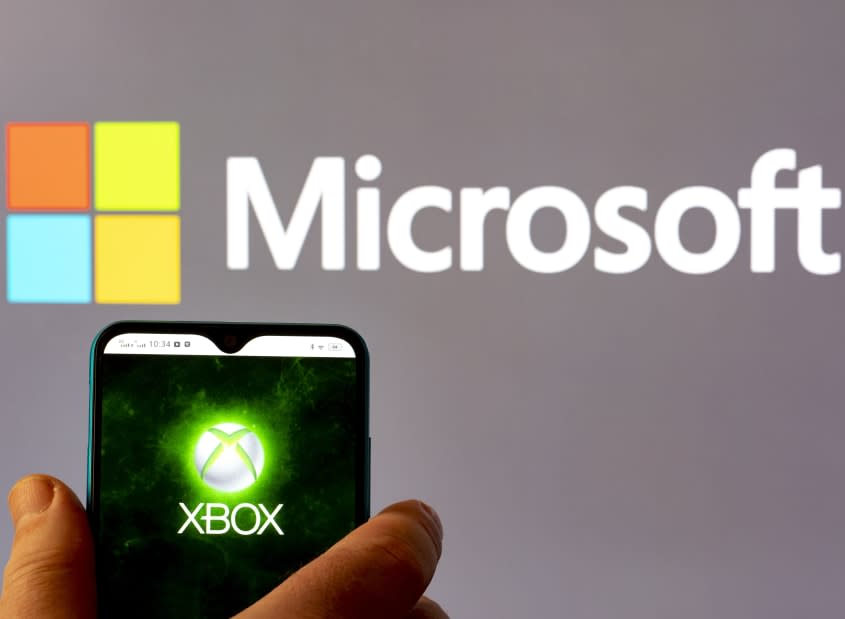What the FTC v. Microsoft trial uncovered about the video game industry

- Oops!Something went wrong.Please try again later.
- Oops!Something went wrong.Please try again later.
The five-day U.S. Federal Trade Commission hearing regarding Microsoft's pending acquisition of video game publisher Activision Blizzard has wrapped but not before the trial exposed some closely kept industry secrets. In defending itself against the FTC's request for a temporary injunction, the company behind the Xbox revealed a lot of behind-the-scenes tidbits that have the industry talking.
"For a company that is ordinarily extremely buttoned up in an industry that's full of secrets, the trial has been a rare window of transparency," Shannon Liao said in an analysis for IGN.
With time running out for the $6.9 billion deal to close, the stakes are high, and what happens next "could not only be a historic moment in video gaming, it could shape how millions play them for years to come," Polygon stated. The decision is now in the judge's hands.
The biggest secrets revealed
Microsoft has maintained a "tightly crafted image" for decades, with Xbox executives appearing "jovial, calm and unpressed about the console wars," but the "mask has slipped" in the FTC trial, Liao wrote for IGN. One of the first bombshells came when the company admitted the Xbox has been losing the console wars against Sony's PlayStation and Nintendo since its release in a filing leading up to the hearing. Microsoft Gaming CEO Phil Spencer called the console wars a "social construct within the community" during his testimony while acknowledging that the Xbox "remained in third place for quite a while."
Liao noted that the trial also revealed the "lengths that Microsoft is willing to go to in order to buy an advantage" after trailing in third for the past two decades. Despite trying to downplay their competitive edge in court, internal emails from Matt Booty, the head of the Xbox gaming division, revealed that in 2019 Microsoft intended to "spend Sony out of business" by spending $2 billion to $3 billion on acquiring content for the Xbox Game Pass subscription service. However, Microsoft General Manager of Public Affairs David Cuddy told The Verge that the email was outdated and referred to "industry trends we never pursued and is unrelated to the acquisition [of Activision Blizzard]."
Many revelations surrounded "Call of Duty," Activision's massively popular first-person shooter. Jim Ryan, the CEO of Sony Interactive Entertainment, said he had "significant concerns" about whether "CoD" and other Activision titles would continue to be available on PlayStation if Microsoft acquires it. A court exhibit revealed that Sony's "Call of Duty" deal with Activision only includes one more game and will end in 2023. Microsoft publicly offered Sony and Nintendo 10-year contracts for the game, but an FTC attorney pressed Spencer to commit on the record that it would not become an Xbox exclusive.
Court documents also revealed how much money video game developers and platform owners spend on high-budget and high-profile projects, categorized as AAA games. Sony spent $212 million over five years to make "Horizon Forbidden West," a figure "in line with major Hollywood movie budgets," Keza MacDonald wrote for The Guardian's Pushing Buttons newsletter. Knowing the costs "provides a stark insight into how expensive it actually is to create cutting-edge games these days."
What's next for the deal?
Judge Jacqueline Scott Corley is expected to rule on the FTC's request to extend a restraining order that prevents the deal from closing. The ruling will likely come before July 18 since Microsoft has until then to complete the acquisition or risk paying $3 billion in breakup fees or renegotiating terms. The FTC also filed a lawsuit to block the deal at the end of 2022, and the U.K.'s Competition and Markets banned the merger in April.
The decision could also affect how much access Activision will have to PlayStation's future console kits. During his deposition, Ryan said Sony could not share details about the PlayStation 6 if the deal closed because they "could not run the risk of a company that was owned by a direct competitor having access to that information."
You may also like
Florida construction and agricultural workforces diminished after new immigration law takes effect
Judge limits how Biden officials can communicate with social media companies
How solar and wind energy are saving Texans from a record heatwave

